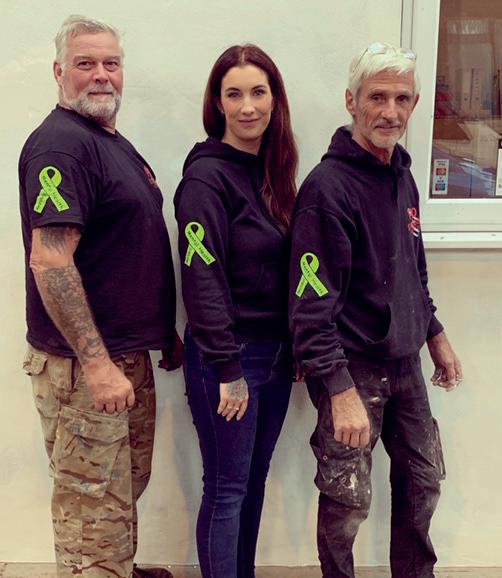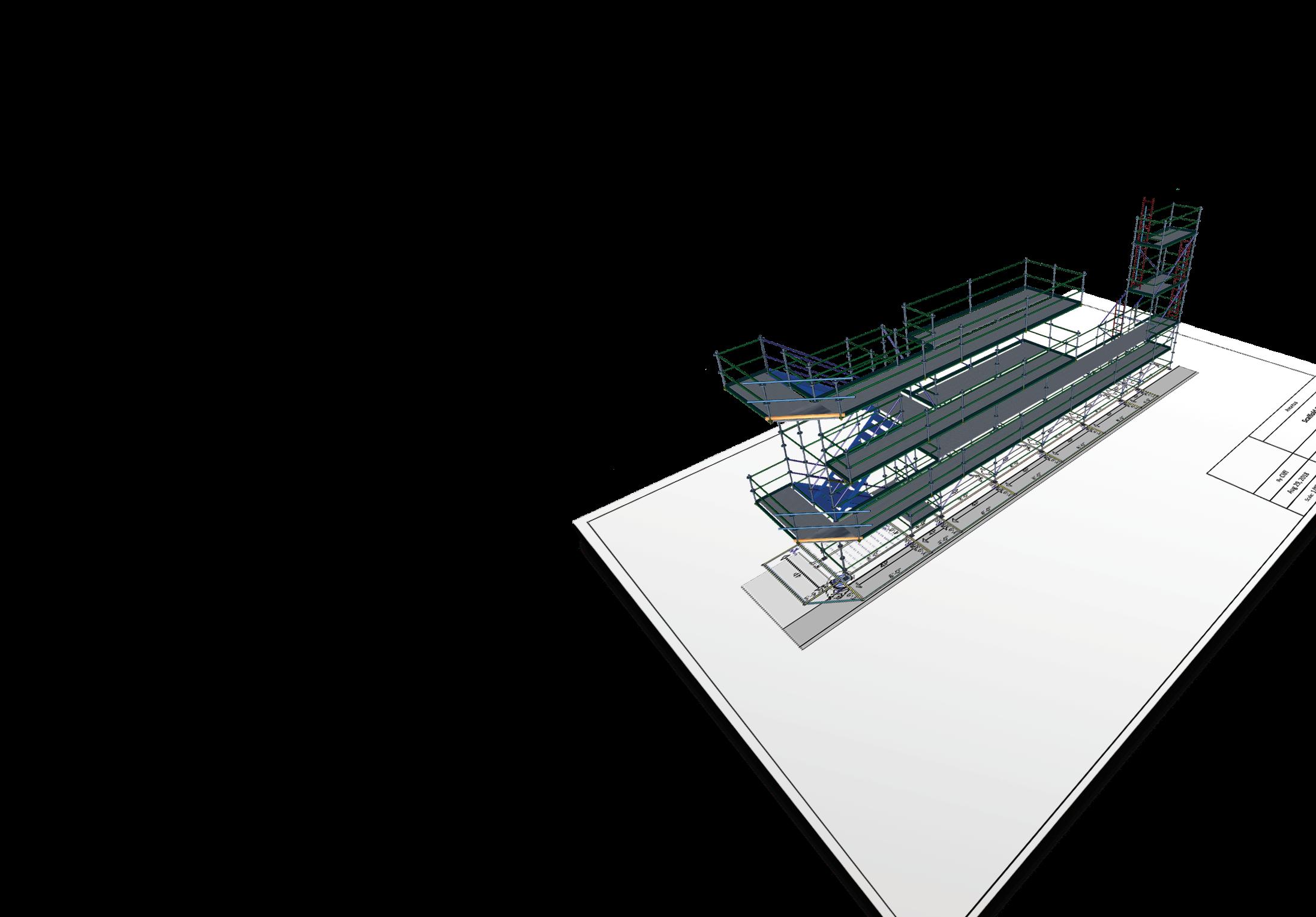
3 minute read
The reality of mental health
from AccessPoint Issue 10
by AccessPoint
“Sadly, my 18-year-old brother took his own life this year. He had worked for our company and within the construction industry since leaving school early,” said Dan Sullivan, owner and managing director at Somerset-based Pro Scaffolding (South West), highlighting how tragedy can strike close to home.
Suicide is the biggest killer of men under the age of 45. However, male site workers are three times more likely to commit suicide than the average male in the UK. Suicide kills more construction workers than falls do.
Construction represents around 7 per cent of the UK workforce and, according to the Office for National Statistics, between 2011 and 2015, of the 13,232 in-work suicides, the construction industry accounted for 13.2 per cent.
Greater awareness needed
Recent surveys suggest that two-thirds of construction workers want better physical and mental wellbeing support from their employers. There have also been calls for construction to have a greater awareness of mental health and eradicate the stigma associated with it.
Dan continued: “With the shock and devastation this caused, and also experiencing mental health issues first-hand three years ago, we decided as a company it was time to see what we could do to help any of our employees who might be struggling with mental health.
“Scaffolding is a very macho industry – but it’s important to treat mental health as seriously as physical health. Early action can prevent employees reaching that desperate stage. That’s why we wanted to encourage any of our lads to reach out and talk – we wanted to break the stigma and silence surrounding mental health in our industry.”
Understanding mental health in the workplace
Dan’s wife, Heather, who is Pro Scaffolding’s works co-ordinator, researched courses to attend so that their company could be better prepared to help, and so Heather went on the Mind charity’s mental health in the workplace course.
Dan said: “We gained a much better understanding regarding mental health and also valuable knowledge on how I, as a manager, and we, as a company, could help anyone struggling. My new moto became ‘it’s ok not to be ok’.
“Our employees now have a port of call. They can come and talk to Heather privately, in total confidence, and have a chat, talk about issues that may be causing them emotional and mental distress. A lot of these issues we can help with. If a work-related issue is contributing to a feeling of anxiety or poor mental health, we can go through options and in most cases just talking for 30 minutes or knowing someone is there to listen can really help.
“I’ve noticed that some of our team have not been performing at their best, but by being more caring about mental health as well as focusing on traditional health and safety, we’ve been able to make changes and improve performance. It’s helping our workers and also helping us to improve productivity.
“We’re planning on building a ‘quiet room’ so we have a better environment for our staff. We’ll also attend more courses to learn more about mental health so as a company we are best prepared to spot the signs and reduce the stigma surrounding mental health in men in construction.”
Wellbeing support in the construction industry
Today, with work being such a big part of our everyday life, mental health has increasingly become something for managers and business owners to be more in tune with. Many businesses recognise that they need to do something, but are not sure why, how or what this really means to their business – so the issue of poor mental health becomes doubly challenging. The Scaffolding Association has teamed up with Mates in Mind to provide a way for scaffolding contractors to find out more and put in place a better structure to tackle issues of mental health.
Jocelyne Shaw, director of strategy at Mates in Mind, said: “We have quickly become a leading industry charity that supports organisations of any size across the UK to help recognise and improve their workforces’ mental health. With evidence suggesting that three out of every five employees are experiencing mental health issues because of work, at Mates in Mind we believe this needs to change.
“Our supportive approach provides employers with the necessary skills, clarity and confidence to raise awareness, improve understanding, and enable positive action to address the barriers that surround mental health at work. Our work with organisations is showing that this can be achieved through existing management, and businesses are often not starting from scratch.
“Regardless of where your organisation is in its mental health journey, Mates in Mind can provide the insight and expertise to help both organisations and individuals to understand how, when and where they can get support.”
A final word from Dan: “Some people laughed at us when we started our campaign, but many now respect us. We’ve seen a positive response; more people are applying to join us because we’ve got a reputation for looking after our employees and our productivity is improving. Our proactive response to mental health is making a real difference.”
FIND OUT MORE www.matesinmind.org support@matesinmind.org
020 3510 5018


